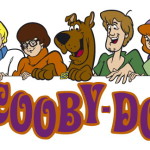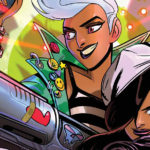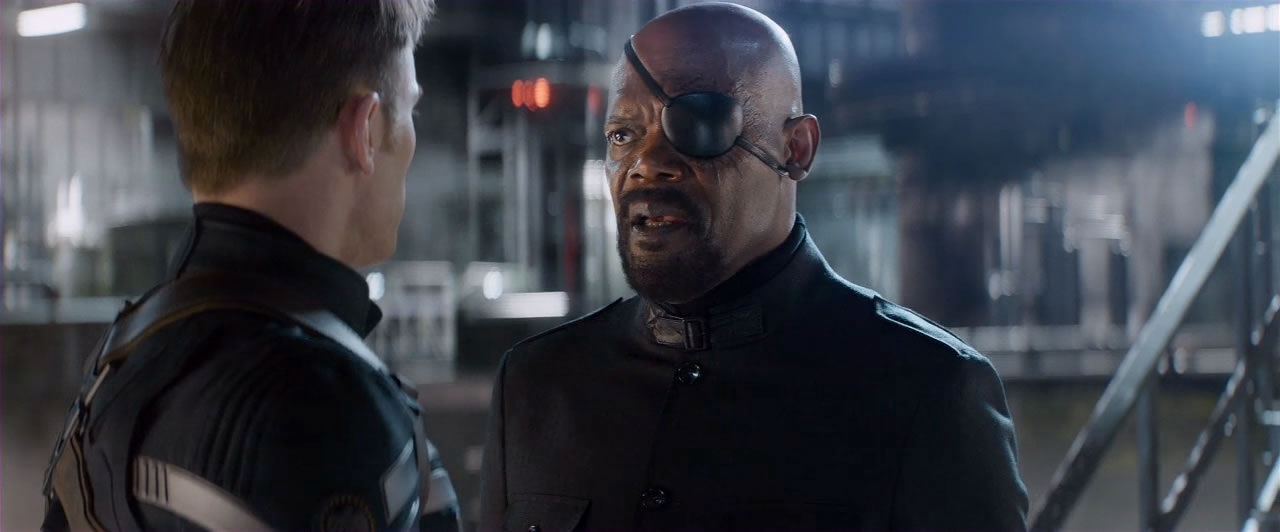
As a lead-up to Captain America: Civil War, the 13th film in the Marvel Cinematic Universe, hitting theatres this Friday, Matthew Bowers is taking a trip back through the MCU’s twelve previous films, seeing what holds up, what doesn’t, and what he might not have given a fair shake to the first time. Tuesday was part one of that retrospective, covering 2008’s Iron Man through 2011’s Captain America: The First Avenger. Today covers 2012’s The Avengers through 2014’s The Winter Soldier, and the final installment on Thursday will finish things off with Guardians of the Galaxy, Age of Ultron, and Ant-Man.
THE AVENGERS
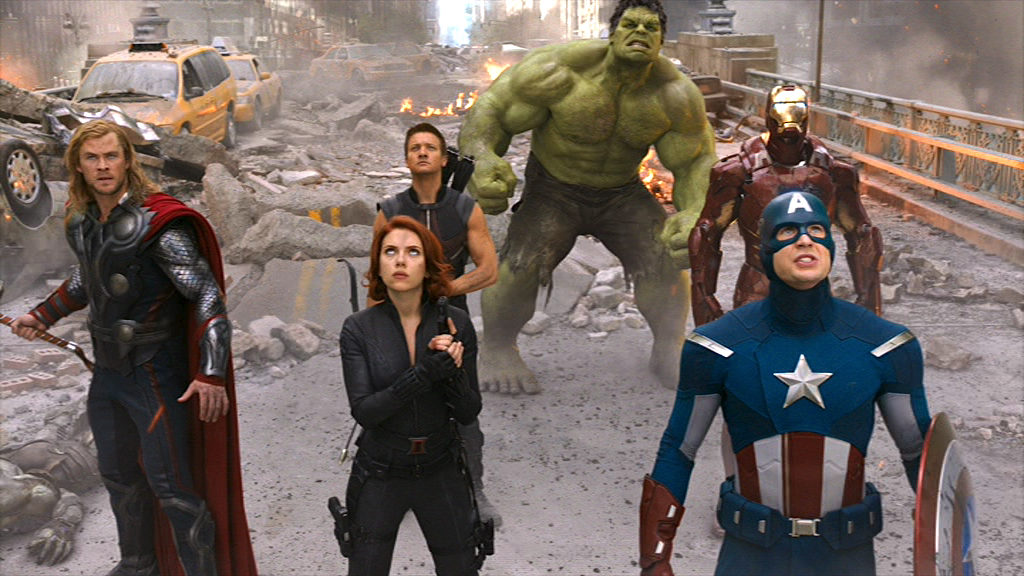
I think it’s fair to say that The Avengers was an unprecedented experiment in filmmaking. Long franchises are nothing new (Star Trek, The Fast & The Furious, pretty much any horror franchise you’d care to name), but I don’t believe there’d ever been an attempt to take four stand-alone films (and one sequel) and tie them together in one, massive, rousing, cross-over climactic film. Such a film would be an incredibly difficult feat to pull off — it would need to continue and expand the character arcs begun in the stand-alone films, while featuring self-contained arcs of its own. It would need to build on the plot and mythology of the previous films without those previous films being required viewing. Basically, it would need to do everything a good sequel does, but times four. I admire Marvel’s ambitious and their sheer gumption, but this film should have been a mess, should have been a disaster, should have been a failure.
So why is it one of the funnest, most deftly executed blockbusters of the last decade? Not to lean too hard on my auteurist theory, but the answer is Joss Whedon. Hollywood has a huge problem with taking relatively untried (white, male) filmmakers and putting them in charge of huge tentpoles. Whedon’s the exception, though. He may have had only directed one film prior to The Avengers, and a particularly niche and underperforming one at that, but he’d cut his teeth for years in television, not only running Buffy, Angel, and Firefly, but also writing and directing some of those show’s most significant episodes. No, if anyone was going to take a ragtag group of misfits and make them work together (and I’m talking here both about the characters and the actual films they starred in), it would be Whedon.
And that all still holds true. Whedon’s script weaves the different character arcs in and out of one another with a light deftness that makes what should have been impossible feel effortless. Whedon’s direction is strong as well — not just his direction of the actors (though that’s certainly on-point), but his staging of the action sequences, also. The Chitauri remain uninteresting cannon fodder and I still don’t buy Loki as a threat significant enough to warrant the attention of this super-team, but Loki was the first villain the Avengers faced as a team in the comics (and the Chitauri had that honor in the Avengers revamp The Ultimates), so, go argue with tradition, I guess. Regardless, this remains an excellent film that serves not only as a satisfying climax to Marvel’s “Phase One,” but a promising springboard for “Phase Two,” and a rousing action-adventure film in its own right.
THE PHASE 2 SEQUELS: IRON MAN 3, THOR: THE DARK WORLD, CAPTAIN AMERICA: THE WINTER SOLDIER
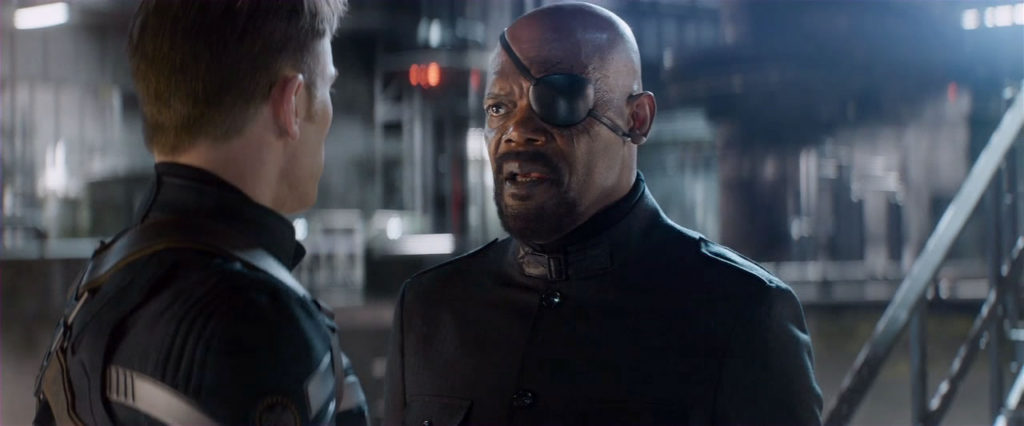
I specifically broke up these three retrospective installments in such a way so that I could discuss these three films together. Seen separately, they wouldn’t seem to have much in common (other than their shared universe). Indeed, by this point, Marvel was leaning pretty hard on its (only somewhat convincing) “every one of our movies is a different genre” shtick. That’s true so far as it goes, but each of these films looks, sounds, and feels undeniably like a Marvel film, despite being a buddy cop movie, a fantasy film, and a spy thriller, respectively.
Still, these three films work together in a very interesting and unusual way. Each of the “Phase One” films did its own thing, more or less, and then each of those was funneled into The Avengers. This trio of films, on the other hand, are all branching off from The Avengers, which means that they’re each operating not only as a sequel to the previous stand-alone films starring Iron Man, Thor, and Cap, but also as a sequel to The Avengers. Sounds messy, but to my surprise, it actually works quite well. Iron Man 3 follows Tony Stark as he deals with his post-traumatic stress disorder brought on by almost dying in The Avengers, and also deals with the legacy of his earlier, free-wheeling, weapons-dealing days, which we saw in the first Iron Man film. Thor: The Dark World follows up on the ramifications of Thor’s destruction of the Bifrost in Thor, as well as the actions of Loki from The Avengers. And Captain America: The Winter Soldier shows Cap dealing with the legacy of Hydra, which we met in The First Avenger, as well as S.H.I.E.L.D.’s understandably panicked reaction to the alien invasion in The Avengers. Each film works on its own as a sequel to its own stand-alone film and The Avengers, but taken together, we can see the full extent of the fallout from the Chitauri invasion, and the crucible that each character endured fighting it off. It’s a much more subtle accomplishment than the grand experiment of The Avengers, but it is in its own way even more remarkable.
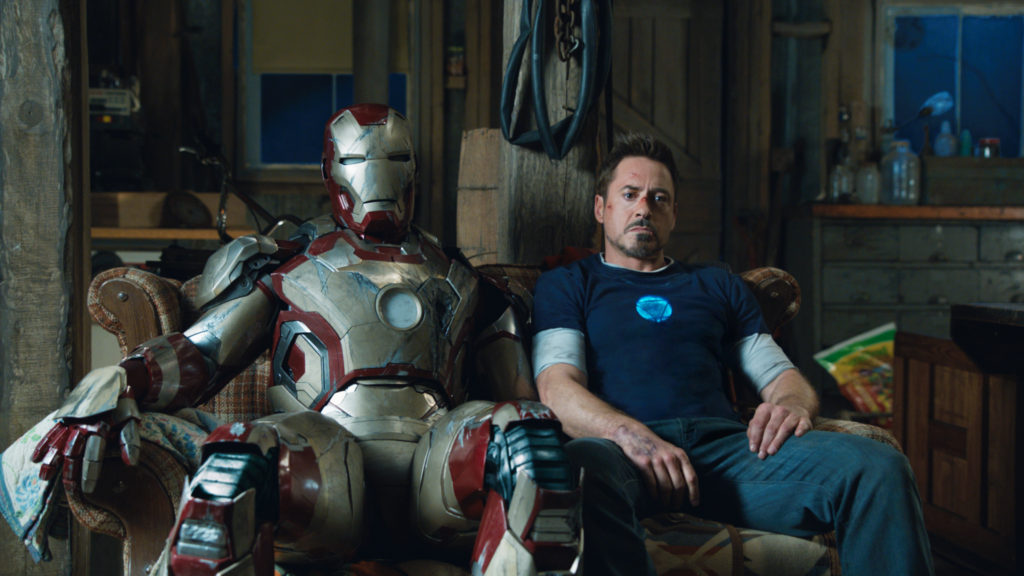
And as individual films? They’re all surprisingly strong. Iron Man 3, of course, is from the mind of Shane Black, the writer of films like Lethal Weapon, The Last Boy Scout, and The Last Kiss Goodnight, as well as the writer-director of Kiss Kiss Bang Bang, a film which served, even more so than Iron Man, as Robert Downey Jr.’s Hollywood comeback. The film manages to balance Black’s signature stylistic flourishes (voiceover, the aforementioned buddy cop dynamic, setting the film at Christmas for no reason whatsoever) with the already-established look and tone of the Marvel universe with surprising deftness. Ben Kingsley’s The Mandarin is a delightful surprise, and Guy Pierce’s Aldrich Killian is a cut above the normal bland Marvel villains we’ve become accustomed to. In true Iron Man style, the film does climax with one big group of CG creations wailing on another big group of CG creations, but the stakes are higher than they were previously, and the film does a good job of making the fight personal, like the first film did. And like the first film, the film is carried largely by Downey Jr.’s performance, which is still in fine form. This is a fun and engaging film that’s probably the best of the Iron Man trilogy.
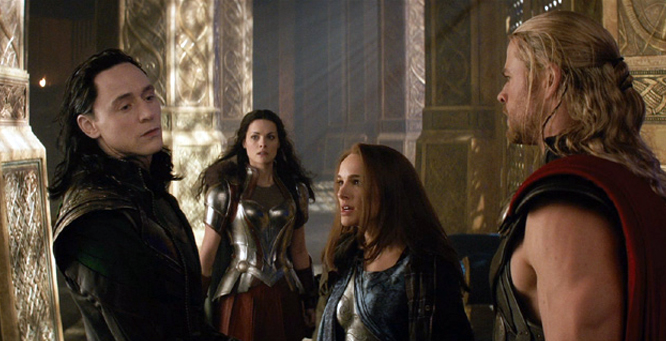
As for Thor: The Dark World, this film was a disappointment for me when I saw it originally, but I’m happy to report it’s improved greatly in my estimation upon a second viewing. Oh, there’s still no character arc for Thor, and Maleketh is still a staggeringly boring antagonist, but the film is a good deal more engaging and entertaining than I remember it being. Asgard feels like an actual place where people live and work, rather than a shiny CG creation, as it did in the first film. Chris Hemsworth and Natalie Portman continue to have excellent chemistry, and Hiddleston gives his best performance as Loki yet. The supporting cast isn’t given a ton to do, and the climax isn’t as universe-shattering as it should be (we’re supposed to be witnessing a collision of the Nine Realms, but we mostly focus on Earth and the eponymous Dark World), but all in all, a much more enjoyable film than I’d expected.
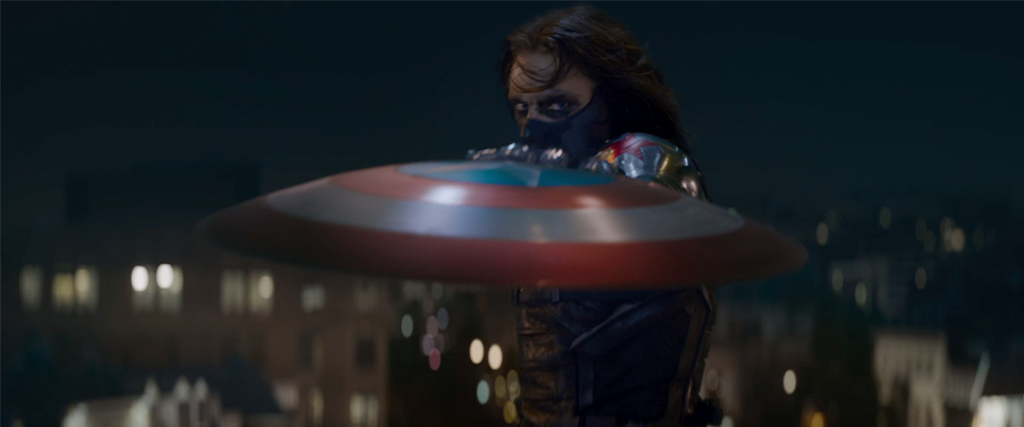
And then there’s Captain America: The Winter Soldier, possibly the best film of the Marvel Cinematic Universe to date. For a writer/director team — Anthony and Joe Russo — known mostly for their sitcom work, one wouldn’t necessarily expect the dynamic, visually-exciting, well-crafted thriller we get here, but then again, given that those sitcoms were Arrested Development and Community — two of the most visually inventive sitcoms in recent memory — maybe it shouldn’t be that much of a surprise. Drawing from ‘70s spy thrillers like The Conversation and Three Days of the Condor (and starring Condor’s own Robert Redford), the Russos create a magnificent, fast-paced spy thriller that, while steeped in that ‘70s tradition, nevertheless touches on very modern concerns about surveillance, accountability, and police states. They also manage to weave in a very good adaptation of the Brubaker/Epting/Perkins “Winter Soldier” storyline from the comics, where its revealed Cap’s wartime buddy Bucky Barnes (played here and in The First Avenger by Sebastian Stan) survived World War 2 and became a brainwashed Soviet assassin known as the Winter Soldier, who was kept in cryogentic stasis and only brought out for very special jobs. The film isn’t perfect: the fact that Bucky is kept in cold storage most of the time isn’t made a hundred percent clear, Emily VanCamp’s Agent 13 is given the short shrift, and the “Insight” program is fantastical enough to seem out of place in this otherwise grounded film, but for a film packed with Cap, Bucky, Natasha, and Fury, not to mention introducing Falcon and Crossbones, the movie does a wonderful job keeping all its plates in the air and telling a damn good story while it does so. It gives me great hope not only for Civil War, but for the two-part Infinity War — all three films to be written and directed by the Russos — as well. If someone needed to take the MCU rudder from Joss Whedon, I’m glad it could be these guys.

The Marvel Cinematic Universe experiment continues to surprise. The storytelling gymnastics required for a project of this size and scope are impressive, but by the time Winter Soldier rolled around, they seem to have gotten a handle on it. Come back Friday, where Whedon follows up his nearly flawless The Avengers with Age of Ultron, and we see if things simply get a little messy, or if the wheels well and truly start to come off the wagon.

